Wireless Logger Networks
Wireless logger networks provide reliable, cost-effective, and convenient data acquisition. Datasheet
Wireless Logger Networks
Logger networks are composed of wireless nodes, internet gateways, and GeoCloud web services.
Nodes are wireless devices that read sensors, digitize the readings, and transmit them to an internet gateway.
Gateways receive readings sent by the nodes, reformat them for the internet, and forward them to an internet server.
GeoCloud Services on the internet process the readings, check for alarms, and update dedicated project websites to show current project status, graphs, and reports.
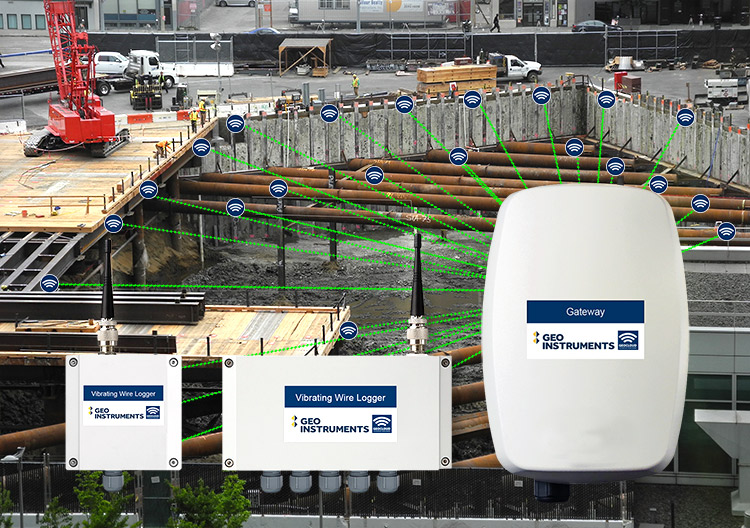
Node Functions & Sensor Compatibility
Logger Nodes
Logger nodes read sensors at specified intervals, store the readings in memory, and transmit the readings to an internet gateway. Most loggers nodes can store 65k readings per sensor. This is useful if transmission paths are temporarily blocked or if less frequent transmissions are needed. Most logger nodes include built-in barometers and temperature sensors.
Interface Nodes
Interface nodes are similar to logger nodes. They read sensors at specified intervals and transmit the readings to an internet gateway. However, they are designed for read & send operations and can store only a few readings. Battery life is very good. Some nodes with built-in tiltmeters are extremely compact.
Sensor Compatibility
Nodes are designed to read specific types of sensors. For example, a vibrating wire node is required for vibrating wire sensors.
Analog nodes are available for current or voltage-based sensors. Digital nodes are available for bus-based sensors, such as shape arrays.
Wireless Logger Network Advantages
Compact & Self-Powered: Nodes are compact and self-powered. They can be placed anywhere on site, including locations that would be impractical with traditional data acquisition systems.
Wireless Transmissions: Nodes transmit data wirelessly, eliminating the expense of installing and protecting long runs of cable.
Simple Wiring & Programming: Nodes have fixed capacities and are matched to sensor types. This greatly simplifies wiring and programming, and eliminates the need for add-on multiplexers or signal conditioners.
Higher Quality Data: Nodes filter and digitize sensor readings locally, eliminating the sources of cable- related data degradation, such as voltage drops and EMI.
Secure Communications: Node and gateway are designed to provide automatic and secure wireless communications. This built-in function eliminates the need for add-on wireless modules and complex programming.
Network Topology
Star Networks: Each node transmits measurements directly to the gateway, using industry standard LoRa-based wireless transmissions. Advantages include reliable long range transmissions, good signal penetration due to the radio band, and an unlimited number nodes per gateway.
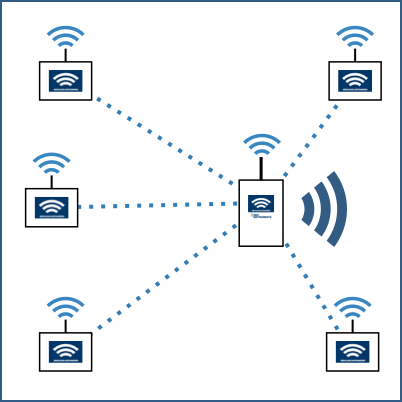
Mesh Networks: Each node transmits to a neighboring node. Measurements hop from node to node until they are received at the gateway. Advantages include the ability to relay transmissions when the gateway is not within line of sight and also to reroute transmissions if a pathway is blocked.
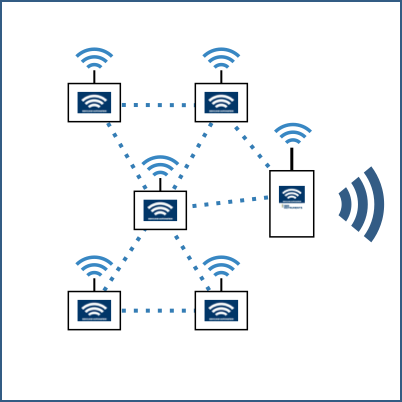
Logger Network Components
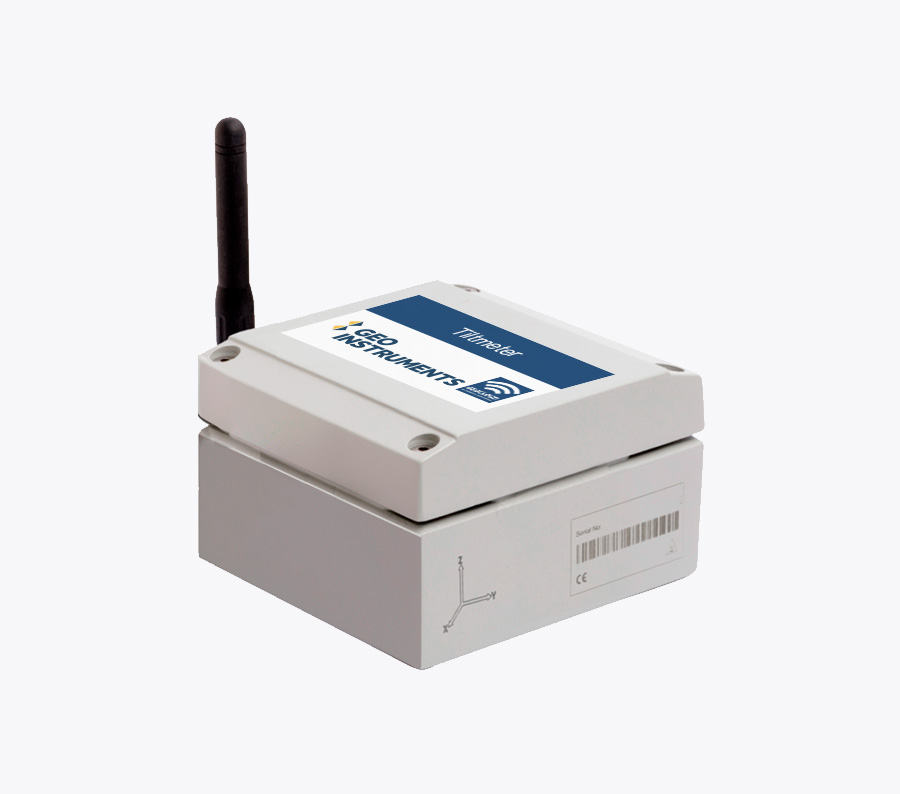
Tiltmeter Logger
The tiltmeter logger has a built-in three-axis tiltmeter with range of ±90 degrees.
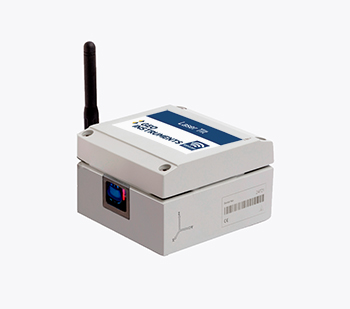
Laser Tilt Logger
The laser tilt logger combines a laser extensometer, a triaxial tiltmeter, and a datalogger.
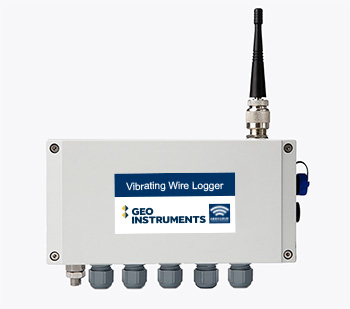
Vibrating Wire Logger
Vibrating Wire Logger monitors piezometers, load cells, strain gauges, crackmeters, displacement sensors. Single-sensor version also available.
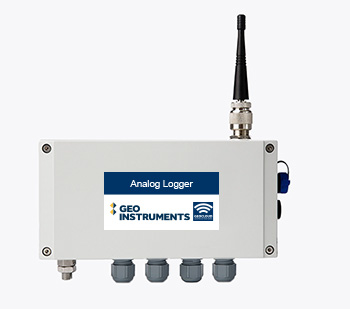
Analog Logger
Analog Logger monitors load cells, pressure transmitters, displacement sensors, jointmeters, rain gauges, temperature probes.
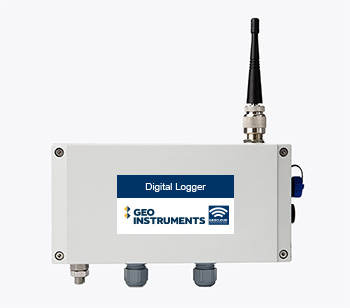
Digital Logger
Digital Logger monitors SAAV and SAAX shape arrays, IPIs, bus-based borehole extensometers, water level sensors.
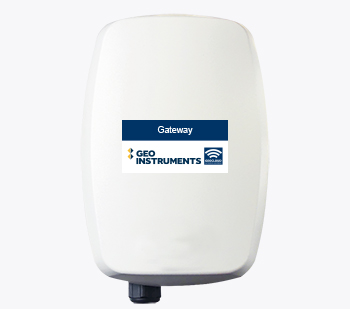
Internet Gateway
Internet Gateway provides internet connectivity for any number of loggers via 4G, Ethernet, and Wifi.
